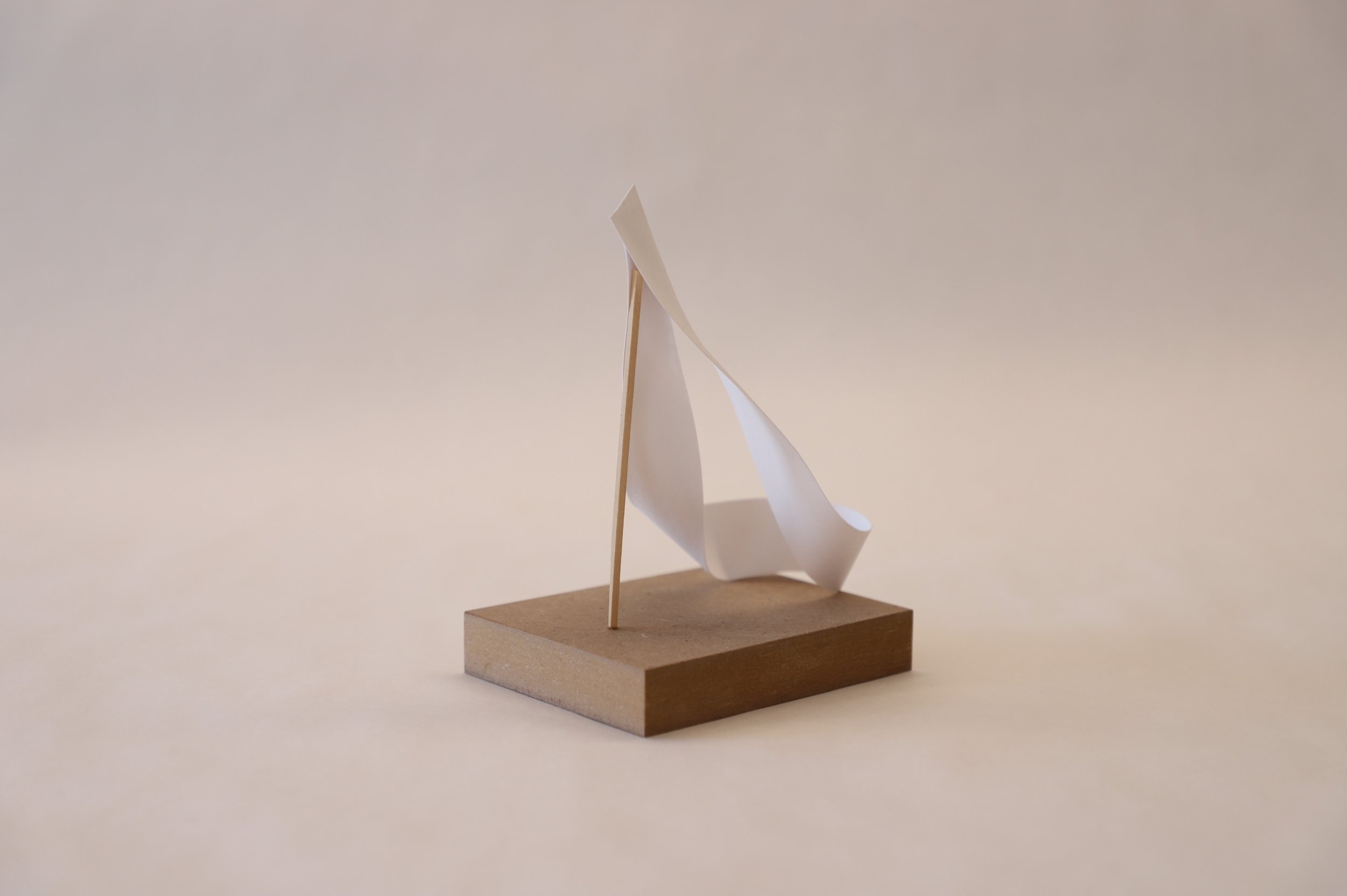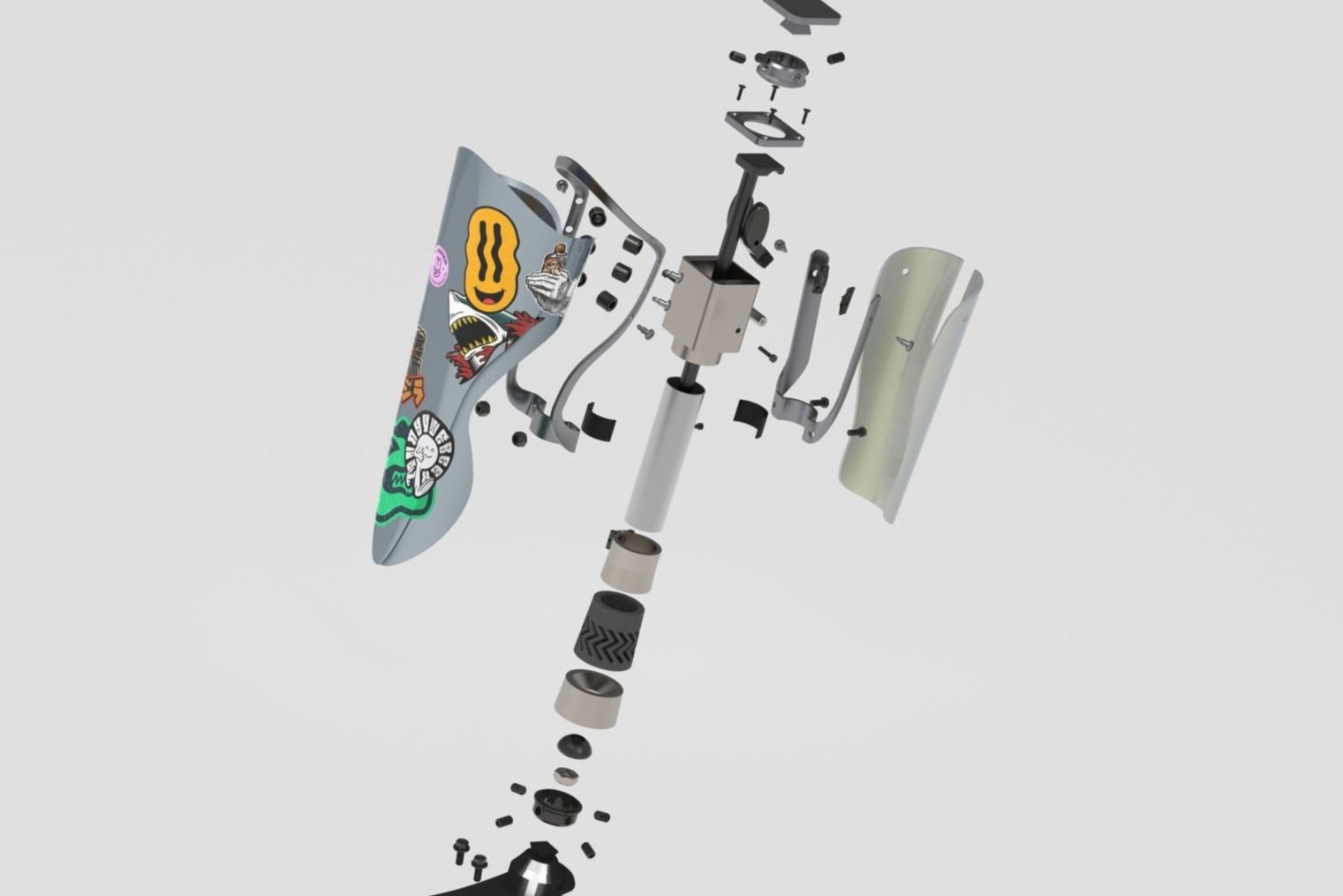
Step back into your passion
Field: Product Design / Prosthetic Design
Duration: 4 Months Year: 2022
Software Used
A below-knee prosthetic designed for street performers, offering an affordable solution that enhances flexibility and performance. By reusing existing prosthetic components and integrating innovative parts, Cypher empowers amputees to reclaim their passion for dance and artistry without the financial burden of high-end prosthetics.
Affordability
Cypher reduces waste by retaining the existing socket, shin tube, and foot, replacing only essential parts. This approach minimizes replacements while maximizing functionality for users.
Ease of use
Cypher's quick-release ankle enables instant flexibility adjustments via a rubber spring, while a protective shell shields the prosthetic and allows easy repairs with quick-release fasteners.
Touch of personality
Users can simply customize their shell with different color and graphics to their preferences and style.
Sustainability
Reusing existing socket, shin tube, and foot of a traditional prosthetic to lower the cost, making it more affordable for street performer.
How It works
Quick release/ lock ankle with simple push/ pull action that actuates instant ankle flexibility changes with the compression of rubber spring.
Problem
Street performers’ earnings are extremely inconsistent, with an average of $1-$200 per hour depending on locations and other factors. Obtaining a most basic prosthesis around $7,000 is considered the most they could afford. Yet, basic prosthesis comes with lack of protection and flexibility that most users struggled.
Economics of Prosthetics
This perceptual map visualizes the current positioning of below-knee prosthetic companies based on price and performance. While premium brands like Össur and Ottobock dominate the high price and high-performance quadrant, affordable brands such as iFIT Prosthetics focus on cost-effective solutions with basic functionality. Notably, the low-price, high-performance quadrant remains underserved, presenting an opportunity to innovate prosthetics that combine advanced functionality with affordability, bridging the gap for a broader range of users.
Ideation & Rapid Prototyping












Form Study
Exploring forms inspired by the expressive styles and preferences of potential users.
Dynamic Ankle Flexibility
Eccentric cam that actuates two orientations
Top contact
Spring Element
Bottom Contact
Spherical element tucking into the openings to lock motion in place
Soft Wood
Aluminum Duct
Materials (left to right)
Flexibility
Medium
High
Low
High
Medium
Material Testing
Static Under Compression
Not Achieved
Achieved
Achieved
Not Achieved
Achieved
Durability
Moderate
Good
Poor
Poor
Moderate
Rigid and prone to splintering, not flexible.
High flexibility but fails to remain static under compression.
Moderate flexibility but lacks locking under compression
The selected pattern, including its gaps and proportions, has been carefully refined with engineering considerations, such as rounded corners, to alleviate stress concentrations and improve material performance under compression.
Pattern and density testing on 3D printed TPU as a simulation of real rubber.
Observation
Achieves desired static state under compression.
Compresses unevenly, lacks consistent lock behavior
Top Adapter
Metal Rod
Cork
3D Printed TPU
PVC Drain Pipe





















